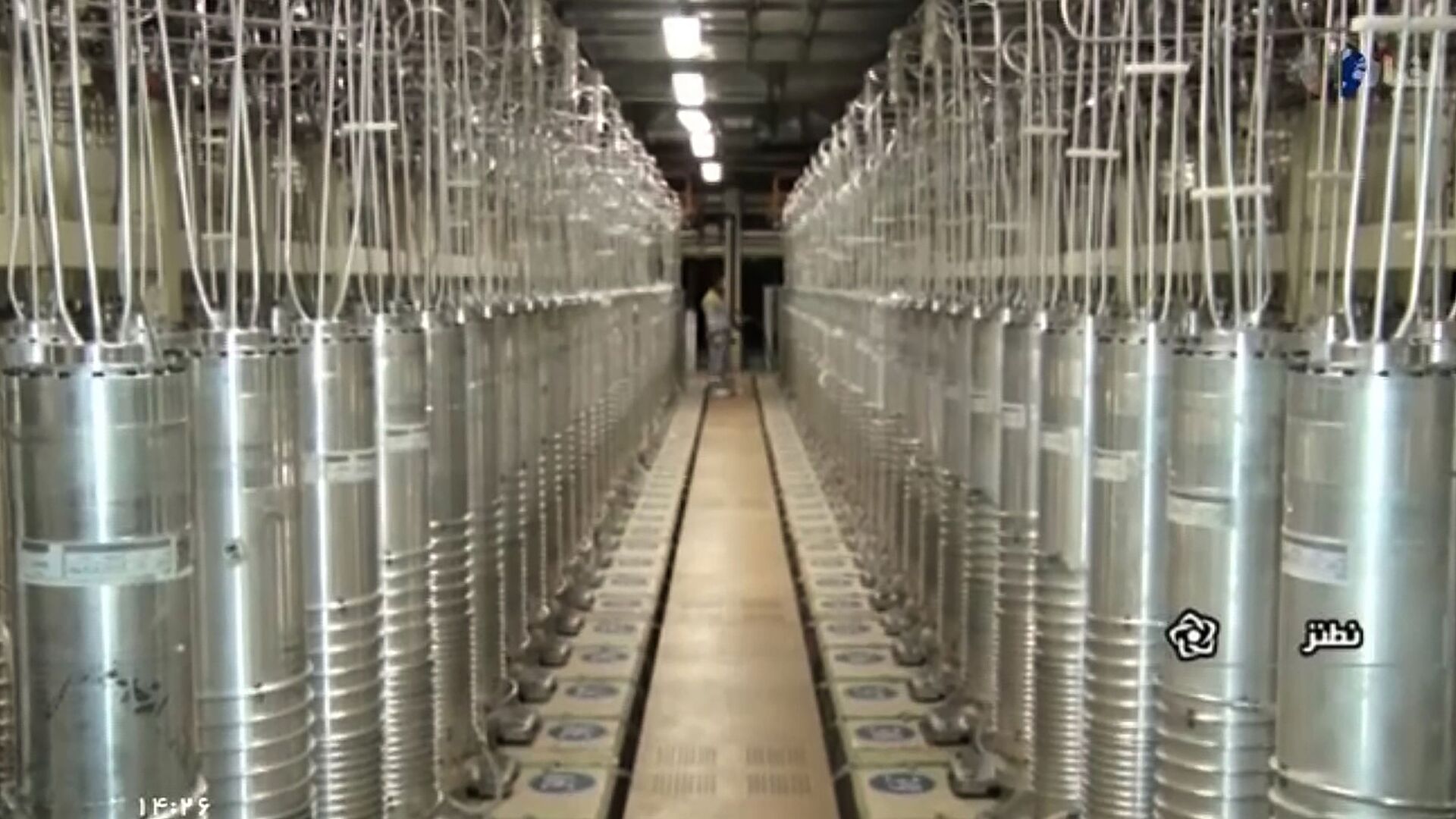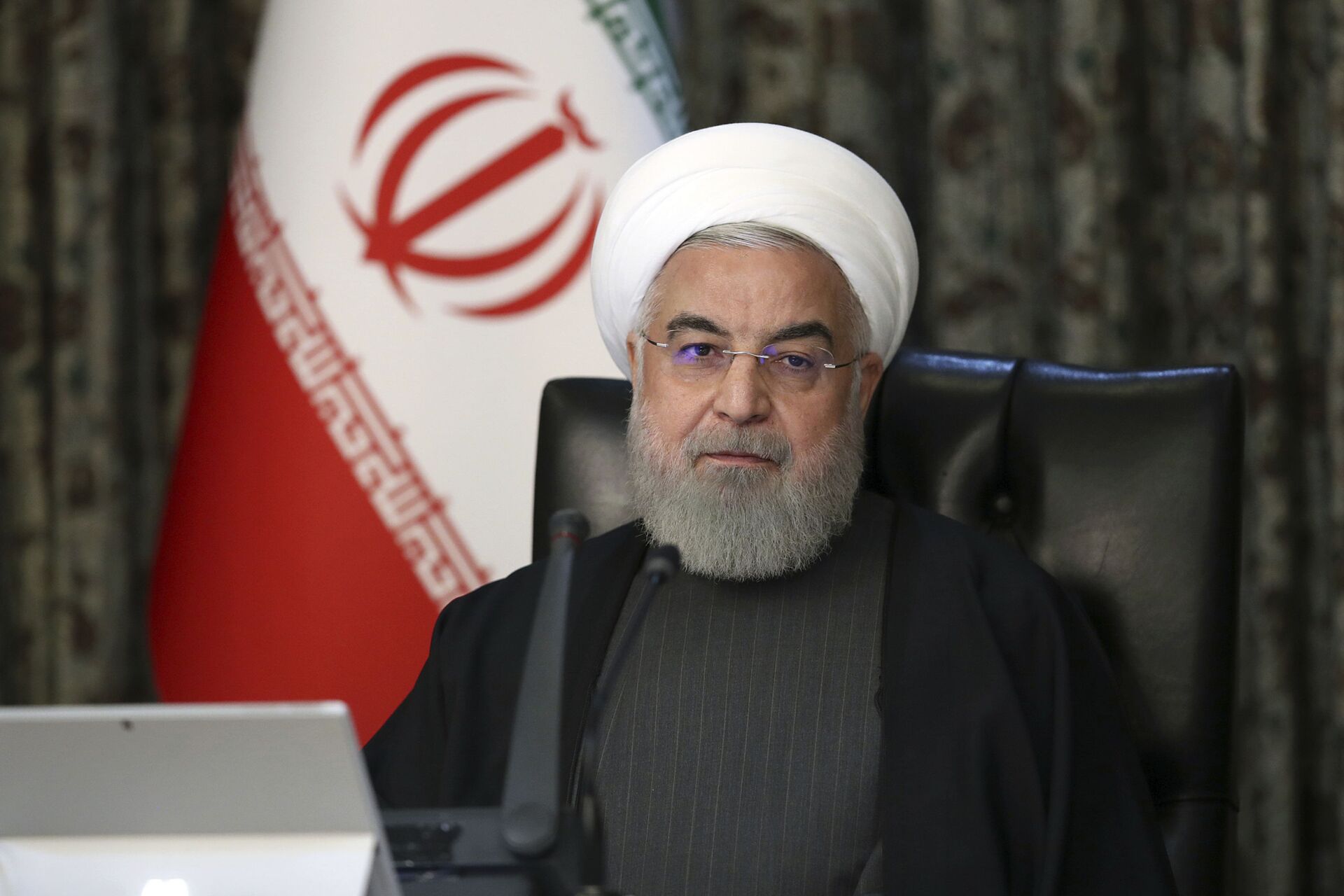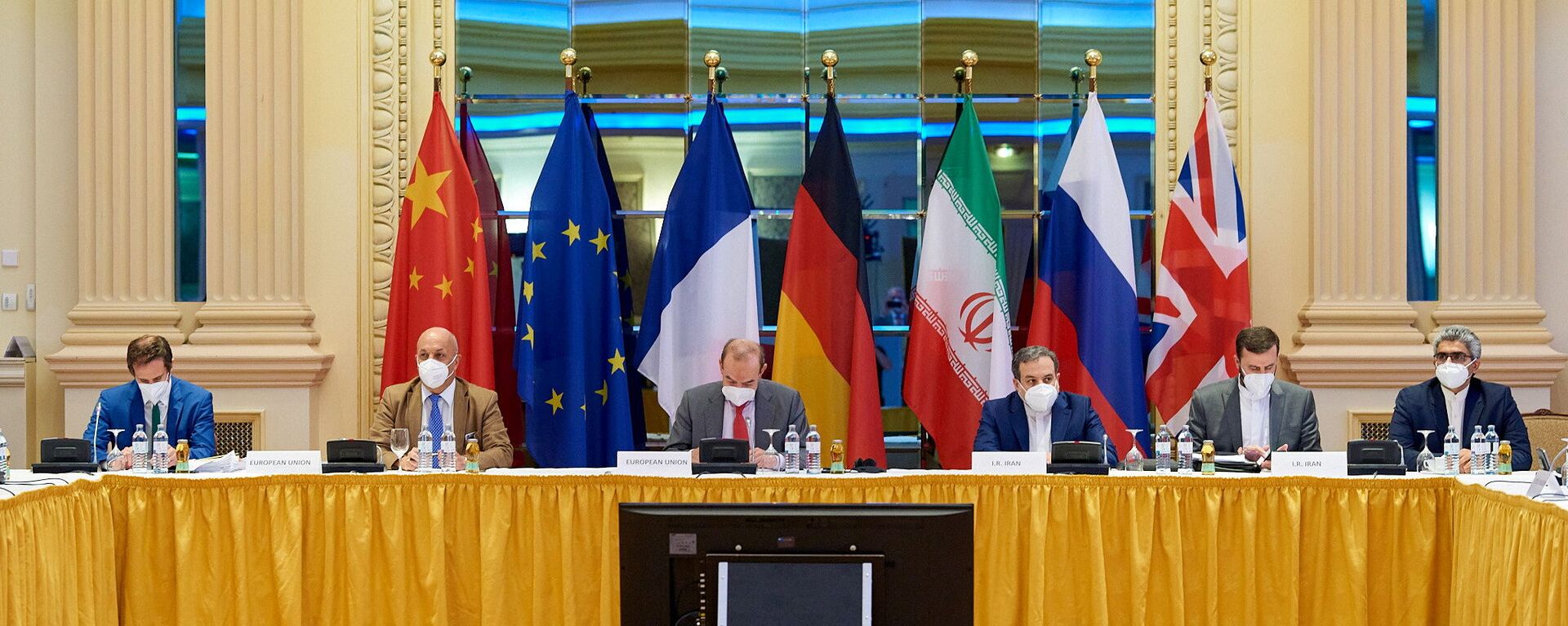https://sputnikglobe.com/20210714/iranian-president-rouhani-reveals-when-tehran-can-produce-90-uranium--1083382892.html
Iranian President Rouhani Reveals When Tehran 'Can Produce 90% Uranium'
Iranian President Rouhani Reveals When Tehran 'Can Produce 90% Uranium'
Sputnik International
In April, Tehran notified the IAEA of its intention to begin enriching uranium up to 60 percent purity after an incident at Iran's Natanz nuclear facility that... 14.07.2021, Sputnik International
2021-07-14T10:50+0000
2021-07-14T10:50+0000
2022-08-06T13:20+0000
newsfeed
world
middle east
iran
hassan rouhani
international atomic energy agency (iaea)
joint comprehensive plan of action (jcpoa)
nuclear deal
sanctions
withdrawal
https://cdn1.img.sputnikglobe.com/img/07e5/07/0e/1083382354_0:74:3377:1974_1920x0_80_0_0_26e1adfd0de6daed2973ada1acddee8e.jpg
Outgoing Iranian President Hassan Rouhani has reiterated the Islamic Republic's readiness to enrich uranium up to 90%.He also touched upon the Trump administration's withdrawal from the 2015 Iran nuclear deal, also known as the Joint Comprehensive Plan of Action (JCPOA), in 2018.According to Rouhani, by leaving the JCPOA Trump sought to kill the deal and make Iran's economy collapse, but to no avail.The remarks followed the Iranian president insisting in mid-April that Tehran is capable of bringing its level of uranium enrichment to 90% but not for the purpose of creating nuclear weapons.This came after Iran informed the International Atomic Energy Agency (IAEA) of its intention to enrich uranium to 60 percent as soon as possible, an announcement deemed "extremely worrisome from a nuclear non-proliferation perspective" by the EU.Iran began enriching uranium past the limits set in the 2015 nuclear deal after then-US President Donald Trump unilaterally quit the agreement on 8 May 2018 and reimposed economic sanctions on the Islamic Republic.In November 2020, the Iranian Parliament passed a bill dubbed "The Strategic Measure for the Removal of Sanctions", which stipulated intensifying efforts in nuclear research in the wake of the assassination of top Iranian nuclear physicist Mohsen Fakhrizadeh. The document also envisages Iran increasing uranium enrichment levels to 20 percent or more.The 2015 nuclear deal saw international economic sanctions lowered against Iran in exchange for its pledge not to develop nuclear weapons and to accept strict limits on its production of refined uranium.
https://sputnikglobe.com/20210621/washington-looking-forward-to-seeing-direction-of-iran-nuclear-deal-talks-1083201970.html
iran
Sputnik International
feedback@sputniknews.com
+74956456601
MIA „Rossiya Segodnya“
2021
Oleg Burunov
https://cdn1.img.sputnikglobe.com/img/07e4/09/0b/1080424846_0:0:2048:2048_100x100_80_0_0_3d7b461f8a98586fa3fe739930816aea.jpg
Oleg Burunov
https://cdn1.img.sputnikglobe.com/img/07e4/09/0b/1080424846_0:0:2048:2048_100x100_80_0_0_3d7b461f8a98586fa3fe739930816aea.jpg
News
en_EN
Sputnik International
feedback@sputniknews.com
+74956456601
MIA „Rossiya Segodnya“
Sputnik International
feedback@sputniknews.com
+74956456601
MIA „Rossiya Segodnya“
Oleg Burunov
https://cdn1.img.sputnikglobe.com/img/07e4/09/0b/1080424846_0:0:2048:2048_100x100_80_0_0_3d7b461f8a98586fa3fe739930816aea.jpg
newsfeed, middle east, iran, hassan rouhani, international atomic energy agency (iaea), joint comprehensive plan of action (jcpoa), nuclear deal, sanctions, withdrawal, us
newsfeed, middle east, iran, hassan rouhani, international atomic energy agency (iaea), joint comprehensive plan of action (jcpoa), nuclear deal, sanctions, withdrawal, us
Iranian President Rouhani Reveals When Tehran 'Can Produce 90% Uranium'
10:50 GMT 14.07.2021 (Updated: 13:20 GMT 06.08.2022) In April, Tehran notified the IAEA of its intention to begin enriching uranium up to 60 percent purity after an incident at Iran's Natanz nuclear facility that damaged the plant's electricity distribution network.
Outgoing Iranian President Hassan Rouhani has reiterated the Islamic Republic's readiness to enrich uranium up to 90%.
Speaking at a Cabinet meeting on Wednesday, Rouhani argued that the "AEOI [Atomic Energy Organisation of Iran] can enrich uranium by 20% and 60% and if one day our reactor needs it, it can produce 90-percent uranium".
He also touched upon the Trump administration's withdrawal from the 2015 Iran nuclear deal, also known as
the Joint Comprehensive Plan of Action (JCPOA), in 2018.
According to Rouhani, by leaving the JCPOA Trump sought to kill the deal and make Iran's economy collapse, but to no avail.
The remarks followed the Iranian president insisting in mid-April that Tehran is capable of bringing its level of uranium enrichment to 90% but not for the purpose of creating nuclear weapons.
"We can already enrich uranium up to 90 percent today if we show determination. However, we said from the very beginning that our nuclear activities are completely peaceful, we stick to our words and do not seek to obtain a nuclear bomb", Rouhani said during a televised address.
This came after Iran informed
the International Atomic Energy Agency (IAEA) of its intention to enrich uranium to 60 percent as soon as possible, an announcement deemed "extremely worrisome from a nuclear non-proliferation perspective" by the EU.
Iran began enriching uranium past the limits set in the 2015 nuclear deal after then-US President Donald Trump unilaterally quit the agreement on 8 May 2018 and reimposed economic sanctions on the Islamic Republic.
In November 2020, the Iranian Parliament passed a bill dubbed "The Strategic Measure for the Removal of Sanctions", which stipulated intensifying efforts in nuclear research in the wake of the assassination of top Iranian nuclear physicist Mohsen Fakhrizadeh. The document also envisages Iran increasing
uranium enrichment levels to 20 percent or more.
The 2015 nuclear deal saw international economic sanctions lowered against Iran in exchange for its pledge not to develop nuclear weapons and to accept strict limits on its production of refined uranium.





